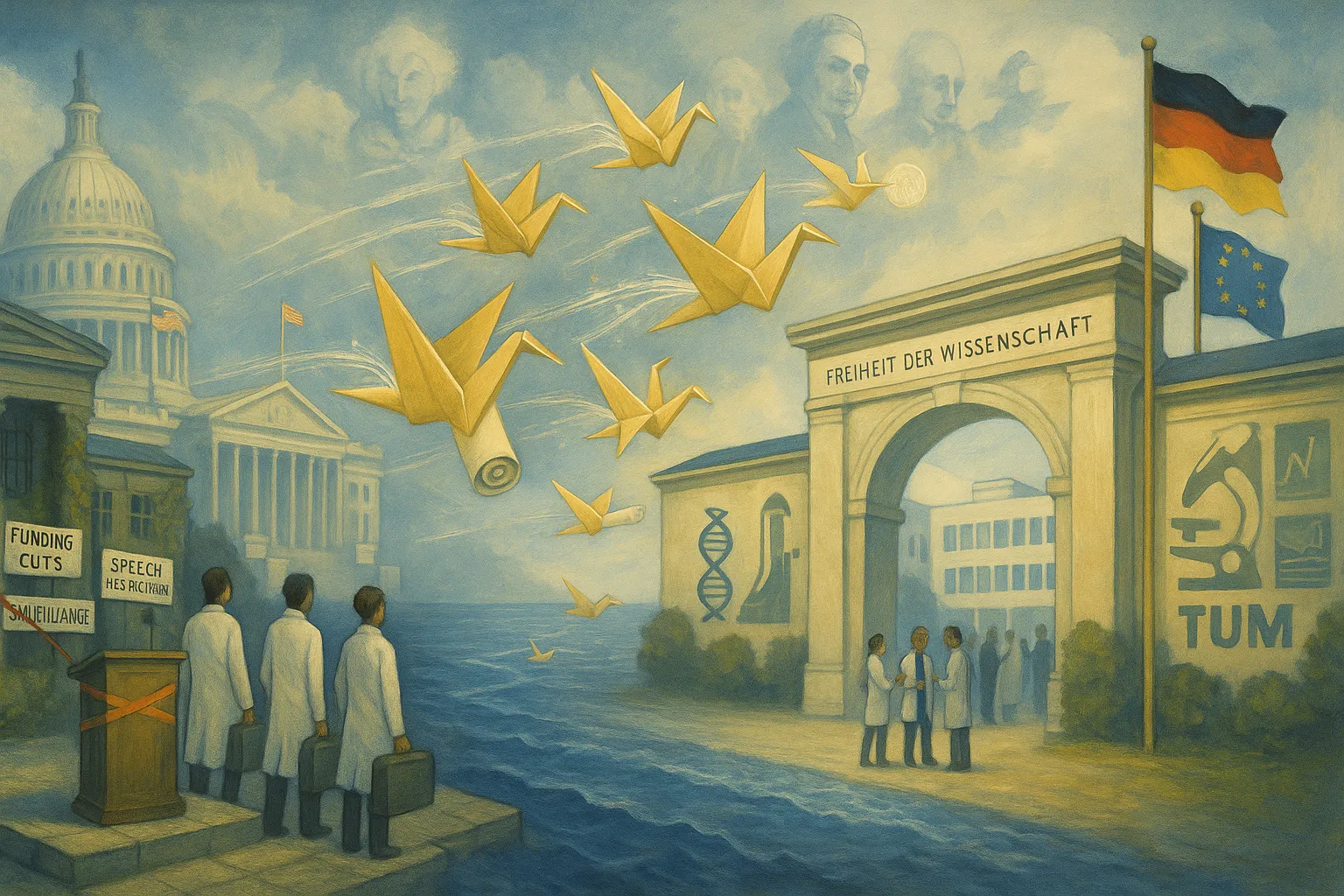Leading German universities report an unprecedented spike in applications from US-based researchers. The Technical University of Munich (TUM) has received 63 applications from international top researchers for its Institute for Advanced Studies - with an unusually high number coming from American scientists.
The surge comes as US President Donald Trump intensifies pressure on American universities. His administration has slashed billions in research funding, imposed speech restrictions, and demanded surveillance of student activities. The political climate has grown so hostile that 75% of US researchers surveyed by Nature magazine are considering leaving the country.
Applications Triple at Munich's Elite University
"When professors are declared enemies, science suffers," says Thomas F. Hofmann, President of TUM. He notes that their Global Visiting Professorship program, typically drawing around 25 applications per quarter, has already received 45 in the current round - one-third from US researchers.
The shift marks a striking reversal of historical patterns. In the 1930s, Germany's loss of scientific talent benefited American universities, as luminaries like Albert Einstein and Lise Meitner fled Nazi persecution. Now, German institutions may offer haven to US researchers facing mounting political pressure.
Mixed Reactions from German Leadership
German Research Minister Cem Özdemir sees an opportunity. "When researchers worldwide show interest in working in Germany, we view this as a chance to strengthen our excellent research and innovation landscape," he told reporters.
But not everyone shares his enthusiasm. Walter Rosenthal, President of the German Rectors' Conference, urges caution according to German news outlet "t-online". Rather than simply poaching talent, he advocates solidarity with American partner institutions during this challenging period.
The political pressure in the US targets specific fields. Climate science, health research, and social sciences face particular scrutiny. Trump's administration has banned certain terms in grant applications and threatened funding cuts to universities allowing pro-Palestinian protests.
Germany's Growing Research Appeal
Germany's appeal as a research destination has grown steadily. International scientific staff at German universities increased 64% between 2012 and 2021. The country's research infrastructure, stable funding, and academic freedom attract global talent.
Yet challenges remain. Rosenthal calls for faster visa processing, more student housing, multilingual programs, and better support services to accommodate an influx of international researchers.
The situation particularly affects elite US institutions. Harvard University faces intense political pressure, with threats to its tax status and federal funding. This pressure ripples through America's top-tier research ecosystem.
Far-Right Hostility to Academia
JD Vance, now US Vice President, set the tone in 2021 by declaring "The professors are the enemy." The far-right's hostility extends beyond political disagreements to reject established science, from evolution to historical facts about slavery and Native American genocide.
German universities must now balance opportunity with ethical considerations. While they could gain world-class researchers, wholesale recruitment might damage valuable transatlantic academic partnerships built over decades.
Why this matters:
- History's wheel turns: Germany, which once lost its brightest minds to America, now offers refuge to US scientists fleeing political pressure
- The next Einstein might be headed east: Germany's stable research environment could attract breakthrough discoveries that would have happened in America








